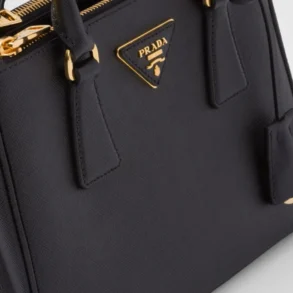
A series of raids in Italy has starkly exposed the disparity between the glamorous facade of Milan’s fashion world and the harsh realities of luxury goods production. According to a report by The Wall Street Journal, an investigation done by Milan prosecutors said local factories manufacturing handbags and leather goods for luxury brands such as Dior and Armani have been found exploiting foreign labour. These factories produce high-end products at a fraction of their retail prices.
Investigation report
As per the report, documents reviewed in the probe reveal shocking details: Dior pays a mere €53 per handbag to its suppliers, which are then sold in stores for €2,600. Similarly, Armani’s bags, initially bought for €93 from suppliers, are resold to the brand for €250 and subsequently priced around €1,800 in stores. These costs exclude expenses for materials like leather, with additional expenditures covered separately for design, distribution, and marketing.
The investigation further revealed that some of these factories, all located in Italy, also manufacture goods for other renowned fashion labels.
Prosecutors have criticised the luxury companies for failing to oversee their supply chain. However, the companies do not face charges related to these findings. Some independently owned suppliers could face charges for worker exploitation and employing workers without proper documentation.
Dior & Armani’s defence
Dior, owned by luxury giant LVMH, did not comment on the report. Armani, however, stated that it had “control and prevention measures in place to minimise abuses in the supply chain” and was “collaborating with the utmost transparency” with authorities.
Italy, which hosts thousands of small manufacturers, remains a hub for producing luxury clothing and leather goods, generating 50 to 55 per cent of global output, according to consulting firm Bain.
Judicial measures
In response to these revelations, judicial measures have been taken against companies like Manufactures Dior SRL and Armani, placing them under court administration due to their involvement with Chinese-owned firms accused of mistreating migrant workers. These legal interventions appoint special administrators to oversee operations and monitor progress in resolving issues.
The court ruling on Dior focused on four Milan-area companies in the supply chain, two of which directly supplied the brand. The workshops producing the goods employed dozens of workers, including at least two illegal immigrants and seven who were employed off the books.
Inspections by Italian police in March and April found workers subjected to “hygiene and health conditions that are below the minimum required by an ethical approach.” Workers usually operated machines from which safety devices had been removed to increase productivity, compromising safety. They also lived at the workshop. Electricity consumption data indicated that employees typically worked from dawn until after 9 pm, including on weekends and holidays.
The court ruling against Armani shows how one of its subsidiaries, GA Operations, hired two subcontractors, which in turn hired several Chinese-owned subcontractors in Italy. Investigators interviewed workers who said they were paid as little as 2 to 3 euros an hour to work long days, far lower than collective bargaining agreements in the sector.
This post was originally published on this site be sure to check out more of their content.








